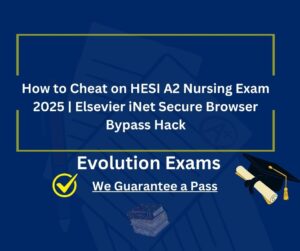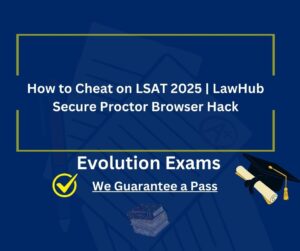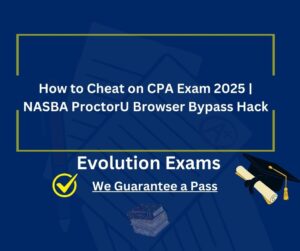The Best Exam-Bypassing Methods to Ensure You Pass

Best Exam-Bypassing Methods to Ensure You Pass
Traditional exams can be tough, but using the right exam-bypassing methods ensures students can pass with ease. By leveraging strategic approaches, students can avoid the common challenges that come with studying and still achieve the results they need. These methods offer an efficient way to manage academic responsibilities while allowing students to focus on developing skills that will help them thrive in the real world. This proactive approach helps students maintain high academic standards without the typical stress.
The best exam-bypassing methods allow students to pass quickly and focus on future goals.
Understanding the Challenges of Traditional Exams
Traditional exams are often seen as a necessary evil in the academic world. They are designed to assess a student’s knowledge and understanding of a subject, but they can come with significant challenges:
A. High Stress and Anxiety
Exams can be a major source of stress for many students. The pressure to perform well, the fear of failure, and the high stakes associated with exams can lead to anxiety and burnout.
B. Time-Consuming Preparation
Preparing for traditional exams often requires long hours of studying, attending review sessions, and completing practice tests. This can be time-consuming and exhausting, especially for students with busy schedules or other commitments.
C. Limited Assessment of Skills
Traditional exams often focus on memorization and recall rather than practical application. This can lead to a superficial understanding of the material and a lack of long-term retention. Students may find it difficult to apply their knowledge in real-world situations, which can hinder their career development.
The Best Exam-Bypassing Methods
Fortunately, there are several effective methods that students can use to bypass traditional exams while still achieving the results they need. Here are some of the best strategies:
A. Project-Based Assessments
Project-based assessments allow students to demonstrate their knowledge and skills through practical application. Instead of taking an exam, students work on long-term projects, often in groups, which culminate in a final presentation or report. This method allows students to showcase their creativity, collaboration, and problem-solving skills while applying their knowledge in a real-world context.
B. Portfolio Evaluations
Portfolio evaluations involve compiling a collection of a student’s best work throughout the course. This method provides a more comprehensive and authentic representation of a student’s abilities and knowledge. Portfolios can include written work, presentations, projects, and other forms of assessment that demonstrate a student’s skills and understanding.
C. Continuous Assessment
Continuous assessment involves evaluating students over the course of a semester or year based on their participation, assignments, projects, and overall performance. This approach often includes a combination of written work, presentations, and group discussions. By spreading out assessments throughout the course, students are assessed more holistically, and the pressure of a single exam is eliminated.
D. Online Learning Platforms
Online learning platforms offer a variety of resources and tools that can help students prepare for exams without traditional studying. These platforms often provide interactive lessons, practice quizzes, and other resources that can make learning more engaging and effective. Additionally, online platforms can be accessed at any time, providing students with the flexibility to study at their own pace.
E. Professional Assistance
Seeking professional assistance can be a highly effective way to bypass traditional exams. Experts in academic coaching and test preparation can provide personalized guidance and strategies to help students succeed. These professionals can help students understand the material, develop effective study habits, and prepare for alternative assessment methods.
Tips for Successful Exam Bypassing
If you decide to use alternative methods to bypass traditional exams, there are several tips to help ensure your success:
A. Understand Your Options
Before you make any decisions, it’s important to understand all your options. Speak with your academic advisor or institution to learn about the alternative assessment methods available and the specific requirements for each.
B. Develop a Study Plan
Even if you’re using alternative methods, it’s still important to develop a study plan. Set clear goals and deadlines for yourself, and create a schedule that allows you to focus on one thing at a time. This will help you stay organized and avoid last-minute cramming.
C. Stay Engaged and Motivated
Staying engaged and motivated is key to success. Find ways to make learning enjoyable and relevant to your interests. Engage with the material in a way that works best for you, whether it’s through hands-on projects, interactive lessons, or other methods.
D. Seek Support
If you’re struggling with any aspect of your preparation, don’t hesitate to seek support. Speak with your teachers, academic advisors, or peers. Many institutions offer resources such as tutoring, study groups, or counseling services that can help you stay on track.
Conclusion
Bypassing traditional exams can be a smart and efficient way to achieve your academic goals. By understanding your options, developing a study plan, and using alternative assessment methods, you can save time, reduce stress, and focus on skill development. Remember, the key to success is finding the method that works best for you and staying committed to your goals.



